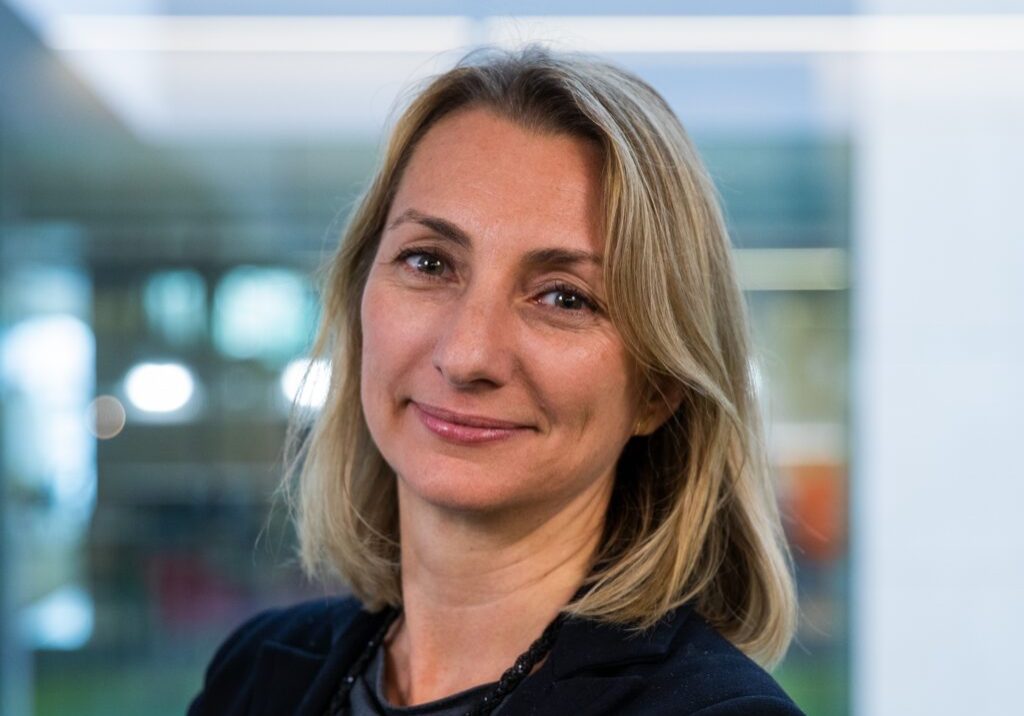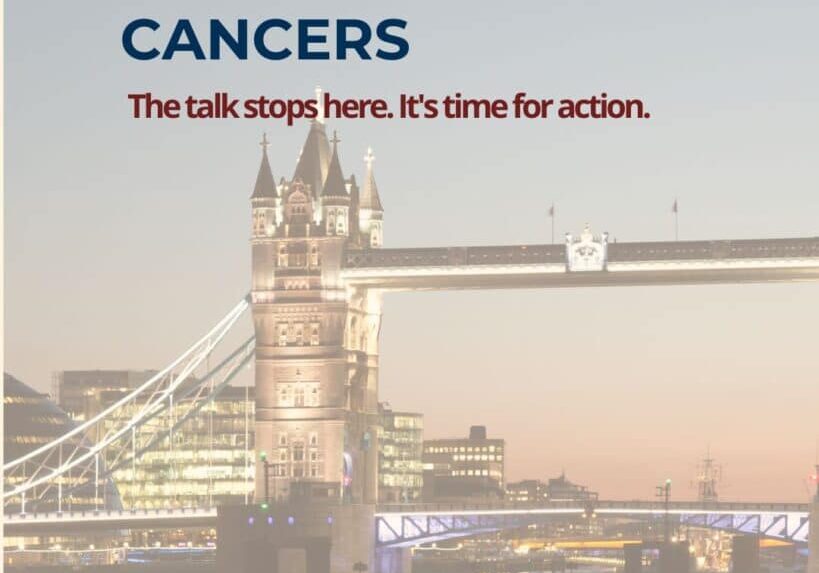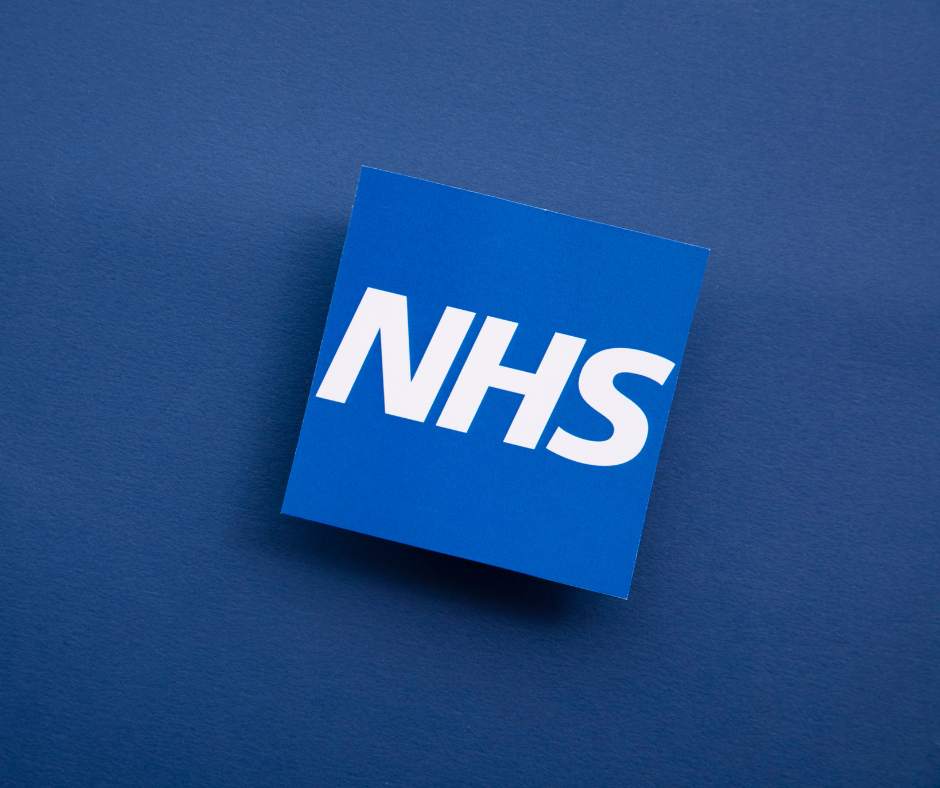A Head and Neck cancer perspective on the NHS Workforce Strategy 2023
The 2023 NHS Workforce Strategy promises plans for a reinvigorated healthcare system in England. It aims to address a shortage of over 100,000 healthcare professionals, including doctors and nurses, promising to not only fill existing gaps but also to anticipate future demands. This plan aims to mitigate the NHS’s reliance on costly agency staff and reduce dependence on foreign recruits. Oracle Cancer Trust has engaged with its community to explore what impact this strategy may have on Head and Neck cancer pathways and care.
The much awaited and needed NHS Workforce Strategy was published on the 30th of June 2023. The NHS had not released a workforce strategy or plan since the early 2000s. Although there have been interim reports with a focus on some aspects, there hasn’t been anything comprehensive that evaluates the supply vs demand of the NHS with regards to workforce, incorporating forecasts, resource expectations and funding requirements.
Understanding the demand and supply of NHS services is critical in building confidence of our amazing healthcare system amongst patients, public and the healthcare workers themselves.
Building for the Future: Domestic Training and Retention
Head and Neck cancer patients are often diagnosed late stage due to both lack of awareness and challenges of healthcare access. Patients also feel a desperate lack of access to specialist healthcare professionals. It is therefore essential that more staff are trained to cope with current and future demand. Central to the strategy’s success is the focus on both boosting training and improving staff retention. A significant shift toward domestic training is proposed to create a workforce that can cater to England’s healthcare needs independently.
By expanding medical and nursing school capacity, apprenticeships and other alternative routes into healthcare roles, the strategy aims to increase levels of early-stage training, laying the foundation for a sustainable NHS workforce. There is a focus on building more nursing resource, primary care, and community services outside of hospitals with the ambition to improve prevention and early intervention.
Although we are pleased to read about this approach, we also look forward to next steps that provide more clarity and specifics. In speaking to our Head and Neck cancer community there is uniform concern about how the ramp up, speed and reality of capacity building will be achieved. For example, and perhaps more generally, how will medical schools increase capacity with existing infrastructure and resources? Or more specifically, how and what role will private contracting play in the modelling and planning so that trusts and teams have more clarity on how to compete and attract staff that are critically needed for cancer care. Recruitment plans need to take into account the realities of salaries and competing career and job paths. Recruitment of cancer nursing staff for example is a real challenge as NHS salaries and job specs don’t measure up to private sector benign work. Finally, with the Head and Neck cancer training pathway having changed significantly over the last 10 years it is not clear how the current training resources and routes will align with the new workforce plans and objectives. The good news is that there is opportunity to discuss and engage on solutions for this before further doubts set in.
Another hugely important aspect is the retention and support of the NHS workforce, which the report acknowledges. Pension reform was a key focus of the report but overall, most of the proposals fall to ICBs and employers to implement locally and doesn’t provide clarity on how and what will change and what ability (budget and otherwise) the local employers will have to make enough change.
Speaking to Head and Neck cancer care colleagues, the strikes, walk-outs, and remuneration disconnect currently at the forefront of the NHS conversation, makes this very important. There is hope that this report and the work behind it, will help build confidence amongst those the NHS wants to retain but also those they want to attract and bring into the system. Again, assumptions and modelling around staff retention needs to include not only those retiring but also early retirement and other leavers. These departures which also can include burn-out, move to private sector and sick-leave are real and putting growing pressures on current staffing levels.
The strategy also mentions the need for improved workplace culture. Reports of harassment, burn-out and inequalities are concerning. The report’s recognition that focus needs to be put on improving workplace culture is a positive first step but what support will be offered to local health systems for implementation?
The risk of not more directly addressing these issues more specifically is that the gap between supply and demand will widen even further and healthcare workers will be disillusioned and leave.
We see and hear every day how stretched our Head and Neck cancer and allied healthcare colleagues are. More resources are required to support late effects services for Head and Neck cancer patients. At a glance this all seems like more money is needed but it is not only funding that can address these issues. On a very positive note – the report did focus on attracting and retaining dentists in the NHS which we applaud, and we really hope this will help reduce the inequalities in access amongst our Head and Neck cancers patient community.
Improved Productivity
The NHS Workforce Strategy also focused on enhanced productivity. Getting the right resources into the right roles and using the right technology to ensure better patient outcomes sounds positive. The initiative to encourage nurses to participate in research was a positive and a particular area of need for Head and Neck cancer. Some other initiatives were less clear and more detail would be welcomed.
Perhaps most importantly, how will the immediate reality we hear from our patient community be improved? How can the current issues of getting appointments with GPs, lack of communication between services and departments (trusts, primary/secondary, dentistry/NHS, social care/healthcare etc) be addressed? How will the NHS deliver on its many laudable and growing set of objectives around early diagnosis and waiting times when strikes continue and trusts are barely able to cope? This is where confidence and trust is failing. And this is a frustration shared by both those delivering the services and those needing the services most.
Preparing for future demand
The UK population is expected to have an 55% increase in individuals aged 85 and above by 2037. In parallel, the NHS is predicted to face a huge shortage of staff members in the upcoming decade. To address these demands, the plan envisions expanding the NHS workforce by 300,000 doctors, nurses, and healthcare professionals by 2037.
What will future demand look like? Patient demographics, needs and expectations are ever-changing and can change radically as we have seen over the last few years. There needs to be a better understanding of and ways to address the rising inequalities in our healthcare provision. And as our population size grows and people live longer and many of them with chronic diseases and/or with long-term effects of cancer, we need to make sure that there is greater equality and equity in access and take up of our country’s healthcare services. The patient of today also has different perspectives than the patients of the last decade. And there are many different communities and perspectives to consider.
Without truly understanding these diverse and evolving needs, it is hard to accurately balance the required level of supply vs demand of workforce. Assumptions are being made which are perhaps not always correct and which may over or underestimate particular areas of need, resource and budget.
Oracle Cancer Trust is leading a national Patient and Public Engagement initiative to try and ensure we gather more diverse inputs into research and healthcare discussions. The more collaboration there can be between patients and the public with the NHS about what the needs and expectations are, the better the design and service outcomes will be.
What does this mean for Head and Neck Cancer patients?
This report is a positive first step looking at the supply side of healthcare. It’s not an easy ask and it takes significant time, resource, and planning. In a recent Head and Neck patient survey (2021), that Oracle Cancer Trust ran, our patients overall highly rated their diagnosis and treatment experience. But there is also a growing level of uncertainty, concern and frustration from the Head and Neck cancer community of patients, carers, and healthcare workers.
The services that patients experience, and healthcare workers live and breathe are understaffed, budgets are non-existent and there is evident strain. Cancer diagnosis and treatment waiting times in Head and Neck cancers are concerning and the variance in care across the country is getting worse. And this creates an increasing sense of anxiety that we hear in our conversations. It is therefore a hugely positive step that NHSE has published this Workforce Plan and we applaud the effort put into the report and the data that was gathered to support it.
There is also however a lot more to do; significant gaps and lack of detail to add. With the commitment made to updating the plan every 2 years this is only the start. We look forward to working with NHSE, our clinician association partners and the other charities and key stakeholders towards in understanding the needs and helping to create collaborative solutions. We come to this with a Head and Neck cancer focus but we know that the same will apply in other cancer and healthcare areas. This is the only way we will achieve the goal of ‘ensuring the NHS has the workforce it needs for the future’.

Using the power of football to help prevent cancer
This week, Oracle Head & Neck Cancer UK has launched an important awareness campaign in partnership with Bromley FC, using the reach of football to shine a light on head and neck cancer prevention and the life-saving importance of the HPV vaccine. Throughout the week, Bromley FC is sharing trusted health information with its supporters,…

Cancer Care: Why Mental Health Support Must Be Part of Every Cancer Journey
Oracle Head & Neck Cancer UK is proud to support the Daily Express Cancer Care campaign, a powerful series that shines a light on the often unseen emotional toll of cancer – and the urgent need for better psychological support for everyone affected. The campaign published over the past three weeks featured voices from across…

Ground-breaking blood test shows promise for early detection of head & neck and other hard-to-screen cancers
A new large-scale trial has found that the blood-based screening test known as Galleri test can detect more than 50 types of cancer – including cancers of the head and neck, which currently have no routine screening programme – and may significantly boost early diagnosis. The trial showed that, when used alongside existing screening methods,…

2 Minutes to Save Your Life: Oracle Launches HeadNeckCheck Campaign for Make Sense Week
This Make Sense Week (15-20 September), the European-wide head and neck cancer awareness initiative, Oracle Head & Neck Cancer UK, is championing both prevention and early detection – recognising that stopping cancer before it starts is just as vital as catching it early. Two Ways to Fight Cancer This Week Prevention Today: Head and neck…

Leadership update
After four successful years as CEO, Tamara Kahn has transformed Oracle into a respected national voice for head and neck cancer patients. She established a national presence, created a four-pillar RACE strategy (Research, Awareness, Collaboration and Patient/Community Engagement) and built strong policy influence. With these foundations now firmly in place, Tamara will transition from her…

Finding Light in Adversity: Seven inspiring stories through head and neck cancer
A new collection of patient stories from Oracle Head and Neck Cancer UK reveals how individuals facing head and neck cancer have discovered unexpected sources of strength, purpose and even joy during their treatment and recovery. The seven contributors share remarkably similar themes despite their unique journeys. Almost all emphasise the power of maintaining a…

NHS to fast-track patients with head and neck cancer into cancer vaccine trial
Patients with advanced head and neck cancers in England will be fast-tracked into a trial of a new cancer vaccine, as the NHS expands its world-leading trial ‘match-making’ service. The investigational cancer vaccine uses mRNA technology to help the immune system recognise and kill cancer cells containing human papillomavirus proteins. More than 100 patients with advanced head…

World Head and Neck Cancer Awareness Day 2025: The HPV Vaccine Could Save Your Life
27th July 2025 This World Head and Neck Cancer Awareness Day, Oracle Head and Neck Cancer UK has a simple but urgent message: HPV vaccination saves lives. With HPV-related head and neck cancers having doubled in the past 20 years, the charity is using today to remind the public that these devastating cancers are preventable…

Data from the National Disease Registration Service on HPV associated and HPV independent oropharyngeal squamous cell carcinoma
The Get Data Out Programme from the National Disease Registration Service (NDRS), part of NHS England, has published statistics on incidence, routes to diagnosis and treatment for patients diagnosed with oropharyngeal cancer in England by human papillomavirus (HPV) status. To our knowledge this is the first time data on oropharyngeal cancer by HPV status has…

Join Us for an Evening of Research, Impact, and Conversation
Research & Impact EveningDate: Monday 28th April 2025Time: 6:00 PM – 8:30 PMVenue: Skyline, Tower Suites, 100 Minories, London EC3N 1JY A Celebration of Research Join us for a meaningful and action-focused evening where we’ll be diving into some of the big conversations around head and neck cancer – especially those linked to HPV (human…



